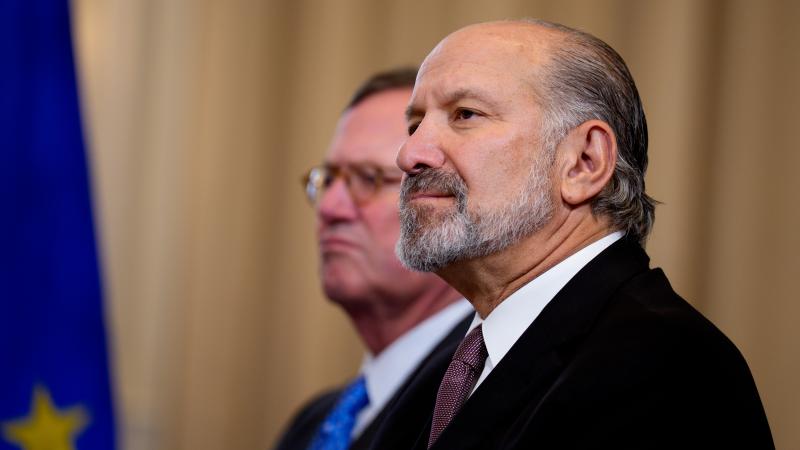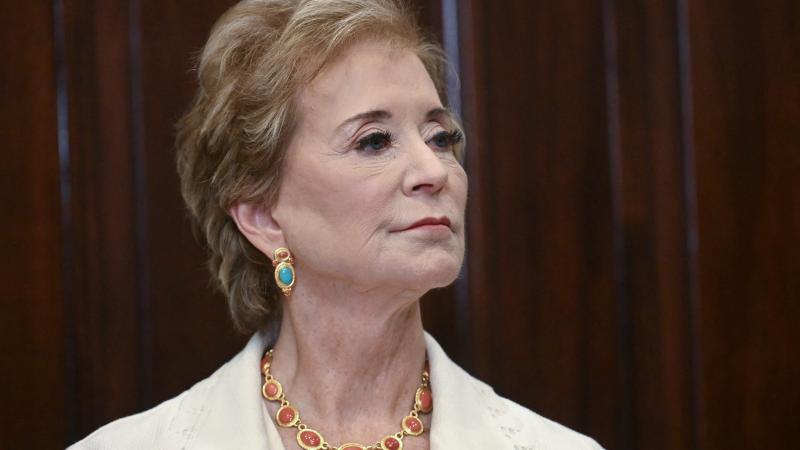State financial officers warn ESG climate-disclosures would politicize accounting, drive up costs
"Not only would these climate disclosures politicize an otherwise apolitical practice, but it would impose substantial costs onto companies with no added benefits,” Alabama Auditor Andrew Sorrell said in a statement.
The state financial officers of two dozen states are urging a board overseeing accounting principles that companies and government agencies follow, not to politicize those standards, which they argue would raise costs to companies — costs that would likely be passed onto consumers.
In a letter to the Financial Accounting and Standards Board (FASB), the treasurers, comptrollers and auditors in 24 states asked the board to exclude sustainability and emissions reporting standards into its upcoming generally accepted accounting principles (GAAP) revisions.
The principles are a set of accounting rules, standards and procedures that public companies are required to follow for their financial statements, and GAAP is also widely used in government accounting. These standards are issued, reviewed and revised regularly by the FASB, which is a non-governmental nonprofit organization recognized by the Securities and Exchange Commission (SEC) as the standard setter for public companies.
The financial officers are concerned that emissions and sustainability disclosures are veering into political territory and could potentially undermine fiscal responsibilities that state financial officers have when managing public investments.
“State treasurers and auditors have responsibilities related to the prudent investment of our states’ funds, including public retirement funds, and therefore have a strong interest in accurate and reliable financial reporting by companies in which public monies are invested,” the letter explains.
In March, the SEC passed final rules regarding climate disclosures. While the rules left out some of the more egregious requirements, the rules have become the target of Senate Republicans. They also faced lawsuits, prompting the agency to suspend the rules while the challenges wind through the courts.
The financial officers’ letter argues that special climate-reporting rules conflict with GAAP principles of materiality, meaning that information that affects investors’ decisions need to be disclosed. Citing the Biden administration’s calculations, the letter explains that physical risk is 99% of all commercial and residential real estate loans, and transitional risk is not material for 98% of corporate loans.
“For the small percentage of loans for which it is material, the general principles of materiality would already require reporting this information,” the letter states.
Requiring these disclosures would risk promoting a partisan agenda and undermining accounting prudence, because they require speculation on future climate-related regulations.
“Keeping the third-party standards politically neutral is imperative to states and individuals like financial officers who are in charge of investing public dollars and pension funds based on fiduciary standards. As public fiduciaries, it is vital that we are given uniform standards that do not promote a specific political agenda, but rather focus on maximum return for our constituencies,” Andy Matthews, Nevada comptroller, said in a statement.
Alabama Auditor Andrew Sorrell warned that it’s important for the FASB to remain a neutral third party, and climate disclosures would go against its core purpose.
“It is important for the FASB to remain a neutral, standard-setting organization for businesses. Not only would these climate disclosures politicize an otherwise apolitical practice, but it would impose substantial costs onto companies with no added benefits,” Sorrell said in a statement.















